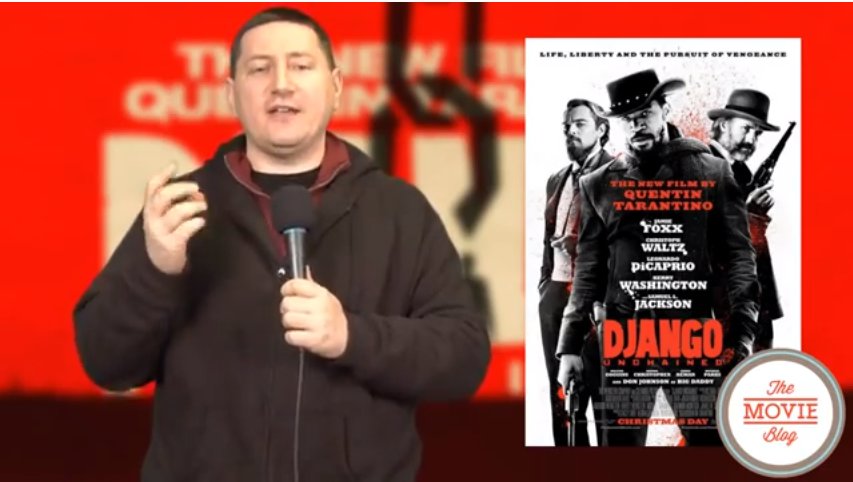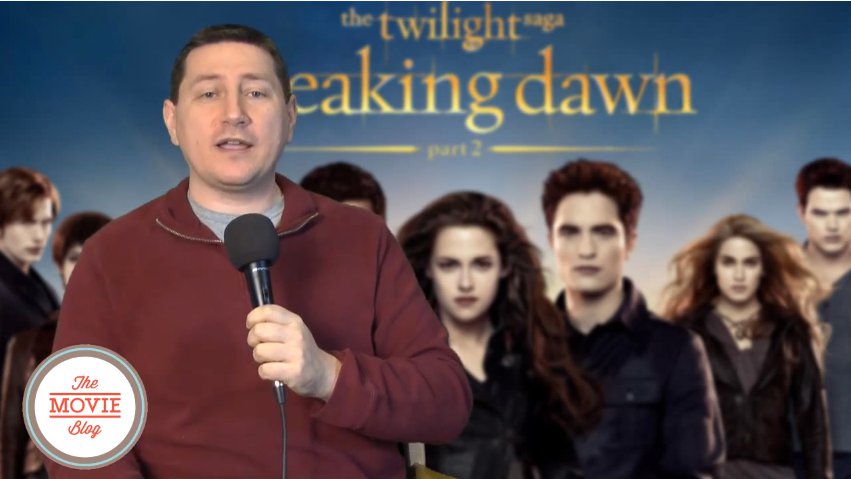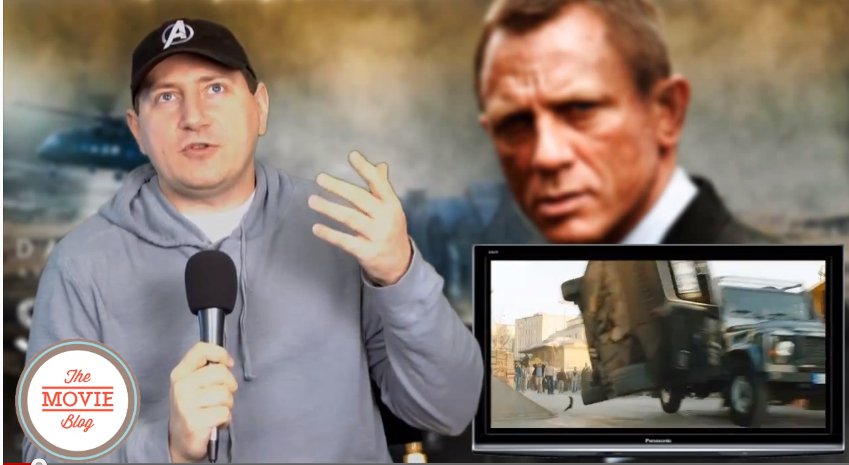 This is an article by Audio Edition Co-Host Darren Conley that he posted recently on his personal blog. The article is on downloading online media… and I am pirating that article and putting it here. Oh the irony. But seriously folks, it’s a great article and you should read the whole thing. You may not agree with it… but it’s certrainly food for thought. Darren writes:
This is an article by Audio Edition Co-Host Darren Conley that he posted recently on his personal blog. The article is on downloading online media… and I am pirating that article and putting it here. Oh the irony. But seriously folks, it’s a great article and you should read the whole thing. You may not agree with it… but it’s certrainly food for thought. Darren writes:
During the Christmas vacation, I received an email from a fan of the podcast, asking me about the topic of downloading music and TV shows online, how that squares with my Christian faith, and ranting about how the morals of today’s generation are being adversely affected by this phenomenon. It was a great email to receive, because it forced me to take a hard look at how I behave online, and how I can justify (or fail to justify) my actions in response to the availability of online media. Here are some thoughts on the topic that I’d like to share with you, my loyal readers.
Let me begin by quoting some of the text from the email I received. The sender gave me permission to quote the message, as long as I did not use their name. They wrote:
I’ve heard that you’re a Christian, yet you’ve talked before about downloading tv shows, and i’m assuming music too. one of the things i dislike about the internet is that it’s letting people get away with stealing. isn’t that against one of the tenets of christian faith? #7 on the Ten Commandments…
In the States, music chain stores (Tower Records, Warehouse) are dropping like flies. While it is true that lowering prices of music would curb downloading by a lot, you would never convince me that it will get the music industry back to where it was…
Why buy when you can get it for free? And it really pains me to see how this is all ruining the ethics of young people. Downloading music off of file sharing programs has gotten out of control. Which makes me think what will the future hold for music stores. And don’t people have any moral conscience at all? The argument that people say it’s too expensive that’s why I download isn’t a good argument for me. It’s like saying oh that diamond is too expensive, so that’s why i steal it.
The writer of the email also gave me this link to an article showing that iTunes had experienced a significant loss of revenue this past year, signifying that more internet users are refusing to purchase music through legitimate means, and are instead using illegal file-sharing services to find their entertainment.
Let me first point out that Apple themselves has responded to the study quoted in the article (see this article, as well as this one and this one), saying that legitimate online downloads are not decreasing, and that iTunes continues to do very well. Let me also say that while I personally have not purchased many CDs in the past few years, I have not noticed any significant number of music store closures in my area (southern Ontario, Canada).
My personal views on this topic have evolved over time, as the issues of this debate have been discussed by the various parties involved. Currently, I get my music through iTunes or other online retailers. If the song is not available online (as can sometimes happen, since I’m Canadian and some music can only be sold to American customers), I have no qualms about listening to the song online (not downloading it) through a site such as YouTube or MySpace (which allows artists to play music on their own pages), or through the artists’ actual websites.
When it comes to movies, I do not download them, although I would not have a problem downloading a digital copy of a movie if I already owned it on DVD (say, if I wanted to have a backup copy in case my DVD was damaged).
For TV shows, there’s a lot of room for debate. On one side, the shows are already being broadcast for free, so you could watch them at no cost by using an antenna. Thus, downloading them for free is just like using “another antenna”. However, broadcasts have commercials generating revenue for the show, which are not included in downloads. HOWEVER, if I record a broadcast (which is legal for personal use), I have the right and ability to skip commercials and only watch the show. In fact, some PVR devices will automatically edit out commercials, and that practice has not been declared illegal by anyone.
Here is how I currently operate when it comes to online TV show downloading. I pay for cable TV through my local cable company. I currently watch only 3 TV shows on a regular basis: Battlestar Galactica, Scrubs, and The Office. Occasionally I’ll watch Seinfeld reruns, and I often enjoy biographies on the Biography Channel. Since my 3 main shows present storylines that are continuous, I may download episodes of those shows from time to time if I have missed them on TV due to other commitments. Since I am already paying for this programming through my cable company, I don’t feel as though I am “stealing” these episodes, and I do not sell my copies of these shows to anyone else. Usually I delete the episodes after I watch them, unless I want to share them with my wife or a visiting friend.
A major part of this issue is the question of why so many people feel comfortable acquiring media through online resources for free, when those same people would never break into a music or movie store and steal hard copies of CDs or DVDs. Could it be that these people would indeed take hard copies of media if it were just as easy to acquire them (say, if they found that Blockbuster or Sunrise Records had forgotten to lock their doors and turn on their security systems one night)? I’m sure that some people would. However, I think that there is more to the issue than that. I think it’s a matter of perception.
I remember when I first heard about Napster many years ago, I didn’t think “Hmmm… I wonder what the legalities of this situation are?” I thought “Wow, I can finally find all kinds of music that I couldn’t easily find at music stores before!” and “I’ll finally be able to listen to some of those artists that I’m not sure if I want to buy, but that wouldn’t mind checking out more often!” The legal issues, when they came up, all seemed secondary. Why did I think this way? Why didn’t record company commissions and copyright ownership come to mind? Here’s my theory:
For most of my life, I was used to having free, unrestricted access to media. Until I moved out and got my own place, I never payed a cent to watch anything on television, and all the latest, popular music was available for free over the radio. The tapes and CDs I purchased were all bands and songs that weren’t available on the radio (I grew up listening to a lot of Christian rock), and so I expected to pay money for that music. On top of this, many of my friends were into the same music as me, and would regularly lend me a tape or CD, or put together mix tapes to share songs. If I liked what I heard enough to buy a CD, I would buy a CD.
Finding music online was, to me, a lot more analogous to listening to the radio or checking out a friend’s mix tape. This whole online music phenomenon was a novel thing – the average person didn’t even know you could listen to music on your computer, and for most of us, downloading video files of any kind was so time consuming, nobody thought that getting a TV show or movie over the internet was feasible.
It wasn’t until so many people learned how to download music that record companies and bands started losing profits that copyright issues became a matter of public debate and concern. A few people making a mix tape or two might not be an issue – most re-recordings are of such poor quality that, if anything, they encourage people to go out and legitimately purchase a high-quality recording. But mp3s offered digital copies of such high quality that they were acting as substitutes for purchased media, instead of promoting them.
This may explain why the downloading issue has become a topic of public debate, but the nature of modern digital media reproduction technology does nothing to change my perceptions of how media is acquired and consumed. I’m still used to watching TV shows for “free” (or at least, not paying on a show-by-show basis; I am, after all, still paying for internet access like I pay for cable TV), and I can still hear high-quality radio broadcasts for free. Why should using my computer to “tune in” to a TV program, or listen to the latest Avril song feel any different? I never think about copyright issues in front of my TV or listening to the radio in my car – why should I think about them while sitting at my desk at home?
My point is not to condone or endorse the downloading of copyrighted online media, but rather to attempt to explain how so many people can participate in “illegal” behaviour, while feeling no guilt about it.
I believe that the media world, and the online world, is changing. The future of the internet is a move towards video and audio, and a move away from text. Media is what is pushing computer technology forward – I have no reason to buy a newer, more expensive PC just to help me write email or perform word-processing functions. I could still do those things on a 386. But if the computer industry wants to sell me on the latest duel-core Vista-enhanced processor, they have to convince me that integrating my entire household entertainment set-up with my PC is worth it. And that opens the door to online media.
If the way we consume media is changing, then the best that the media industry can hope for is to change along with us. People want to listen to and manipulate audio and video files on their computers because it gives them more options and versatility in how they can consume their music than purchasing a hard copy of a song or video offers them. What the industry has to do is find a way to meet the needs of their customers in the digital age. iTunes is a good start, and its popularity is a testament to how many people want to find music through “legitimate” means. As the next generation becomes accustomed to how digital media is legally consumed, I believe we will see less online piracy, and more successful online retailers.
We can’t expect pre-digital (or as I like to say, “pre-D”) practices to function in a digitized world. The marketplace operates on supply and demand; The demand is obviously there, and the digital retailer who finds the best way to supply customers with media products in an affordable and easy way is the business that will come out on top.
Now if you’ll excuse me, my BitTorrent file of the latest episode of The Office has just hit 100%. I promise to delete the file when I’m done.





















